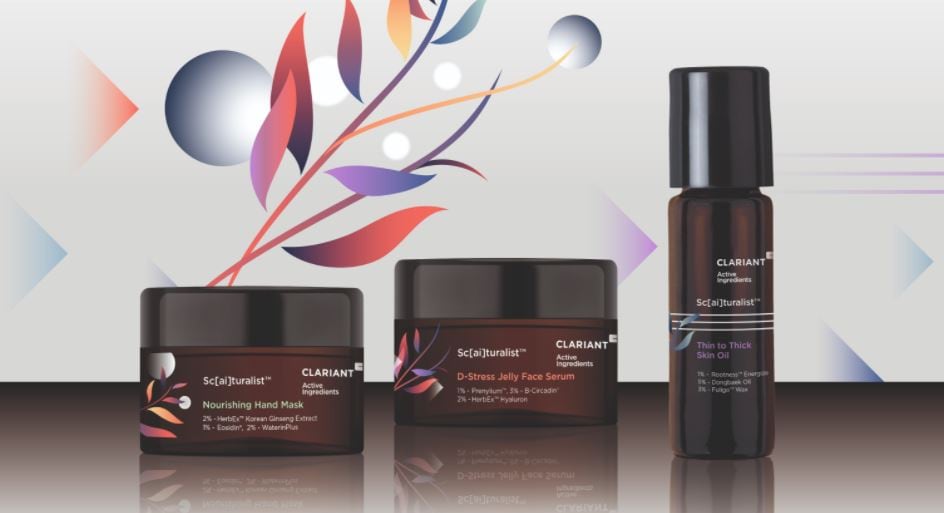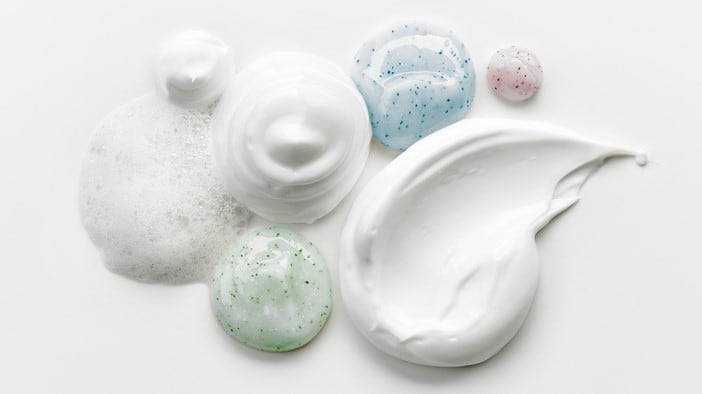Branded under the new RetroFuture line, the formulations are part of the firm’s efforts in meeting consumer needs for nature-inspired products that were backed with evidence, while being sustainable.
The formulations were presented at a recent webinar organised by the firm – ‘RetroFuture: From traditional sources to advanced actives’.
The D-stress jelly face serum is one of the formulations developed by Clariant Active Ingredients. It contains a white mulberry tree root extract (prenylium) found to stimulate type III collagen growth and prevents type I collagen degradation.
In a study conducted by Clariant, prenylium was tested in a formulation (1%) on female volunteers with wrinkles between 45 to 70 years. Prenylium was found to reduce wrinkles by 16.6%, reduce skin roughness by 19.9% and plumps up the skin by 13.4% after eight weeks of application.
Another formula is the Thin to Thick Skin Oil which is an oil serum derived from luffa cylindrica root extract (Rootness Energize) which has been found to increase the energy production of skin cells, improving skin appearance.
Tested in a formulation (1%) on female volunteers between 45 to 55, it was found to increase skin elasticity by 27%, and firmness by 20% after 62 days of applications. The results were most visible on the nose, mouth and eye areas.
The third formulation, a nourishing hand mask made from Red Korean ginseng (HerbEx Korean Ginseng Extract) is said to protect the skin from oxidation through UV exposure, overall improving skin texture.
Root for science
Plant roots are a source of active molecules with strong biological activities. Examples like ginseng and licorice roots have been used in traditional medicine for centuries for their health benefits.
The cosmetic industry has drawn inspiration from traditional medicine, seeking to develop active ingredients from the extracts of such roots. The extracts derived from plant roots are secondary metabolites.
Roots play a crucial role in absorbing water and minerals from the soil to support plant growth, however they are grown in harsh environments and often exposed to stressors include pathogens and mechanical aggressions.
To defend themselves, the roots produce specific compounds called secondary metabolites, which are specific to plant species, environment and even the part of the plant.
However, the concern with root extraction is that the plant will have to be uprooted, essentially killing it.
This will not be a viable option, since large areas of agricultural land, water and time would be required to grow enough biomass to exploit the roots for cosmetic supply.
In addition, the environment in which the roots are exposed to are constantly changing, thus making a homogenous and stable concentration for industrial purpose difficult to achieve.
To overcome this, Clariant Active Ingredients partnered with Plant Advanced Technologies (PAT) to extract root active molecules through a sustainable technology called Plant Milking.
The technology produces active ingredients from plant roots through aeroponic cultivation. The plants are grown in an air or mist environment without the use of soil or a medium, utilising lesser water in the process.
Charlotte Stricane, senior application development manager at Clariant Active Ingredients told CosmeticsDesign-Asia: “The plant roots then are stimulated to produce targeted molecules and harvested three to eight times a year without destroying the plant.”
Roots grown in aeroponic conditions are typically younger roots that produce more secondary metabolites than older roots which rely more on its bark as a defense mechanism.
Sustainable and traceable
This method yields 50 times more target molecules, use 90% less water which is also recycled, and eliminates the use of agricultural land and harmful chemicals.
The active ingredient is 100% traceable from seed to the final product, managing consumers’ demands for product transparency.
Stricane said: “These days, consumers want more action from brands and suppliers on sustainability and biodiversity protection.”
The plant milk technology is detailed in a recent paper published in the molecules journal.
The D-stress jelly face serum and Thin to Thick Skin Oil are currently made using the plant milking technology. The nourishing hand mask is instead made from recycled steaming water used in the red ginseng process.
The active ingredients contained in the RetroFuture formulations are manufactured in France and in South Korea.
Stricane said the firm will release new formulations to complement the existing RetroFuture range throughout 2021.




